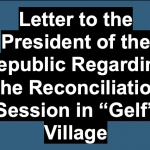By Said Fayez — Attorney at the Court of Cassation –
Amid the rush of daily life and the noise of major national issues, many human stories are lost—stories that deserve our attention. Among them is the issue of converts to Christianity in Egypt: citizens who have chosen a different path of faith and found themselves trapped in an unending spiral of legal, social, and psychological crises.
The Legal Crisis: Citizens Without Identity
The painful paradox begins here. The Egyptian Constitution guarantees freedom of belief, yet the legal reality tells a very different story.
A convert to Christianity in Egypt finds themselves in a strange “extra-legal” situation: they cannot change their religion on their national ID card, cannot marry officially, and cannot properly register their children.
Imagine living in your own country without the ability to obtain official documents that reflect who you truly are—remaining “Muslim” on paper while being Christian in faith and practice. This contradiction creates a fracture between one’s true identity and official identity, turning daily life into a constant struggle.
Marriage becomes a legal nightmare, having children turns into an administrative ordeal, and even death offers no peace—how can a Christian be buried when their papers say they are Muslim?
Social Isolation: Strangers in Their Own Homeland
The legal dilemma is only the tip of the iceberg. The greater challenge is social.
A convert to Christianity in Egypt is often rejected by their family, cut off from friends, and shunned by society. Family estrangement can be total and cruel, and loneliness becomes a permanent companion.
In a society where religion and family are two of the strongest pillars of identity, the convert loses both. They become a stranger in their own homeland—no longer belonging to the community they left behind, yet not fully embraced by the Christian community, which may view them with caution or suspicion.
Even in the workplace, converts may face discrimination or harassment if their conversion becomes known. The fear of exposure becomes a daily preoccupation, and concealment turns into a way of survival.
The Psychological Toll: Invisible Scars
And what of the psychological cost?
Imagine living in constant fear, forced to hide a fundamental part of yourself, lying each day simply to exist in peace. This split between the inner self and the public façade generates immense psychological strain.
Chronic anxiety, depression, guilt over hiding the truth, and the loss of trust in others—these are the invisible prices converts pay.
Without access to specialized, safe psychological support, this suffering only deepens.
Children born under such circumstances grow up with confused identities, caught between their family’s reality and what official documents and society impose upon them.
A Human Appeal: It’s Time for a Solution
This is not a call for any particular religious stance but a purely human and legal appeal. We are speaking about Egyptian citizens—people who live among us, suffer in silence, and are deprived of their most basic civil rights.
The Egyptian state, which has shown great capacity in addressing many complex challenges, can also find a practical and humane solution to this one. Such a solution does not require altering religious fundamentals—it only requires political will to design a legal framework that safeguards human dignity and respects individual choices without disturbing public order.
Many countries in the region and beyond have faced similar challenges and found practical ways to respect diversity while preserving societal stability. Egypt, with its ancient civilization and cultural pluralism, should be more than capable of setting an example.
Conclusion
Ultimately, this is not a conflict between religions, but a question of human dignity—the right of every person to live authentically, for their official identity to match their personal truth, and to be treated as a full citizen with rights and responsibilities.
Converts to Christianity in Egypt are not enemies, conspirators, or threats. They are Egyptian citizens who deserve to have their suffering heard, their existence recognized, and their crises resolved—through collective responsibility by both the state and society.
It is time to speak. It is time to listen. And it is time to find humane solutions to a profoundly human problem.
___________
Translated from: Said Fayaz (Oct. 8)





